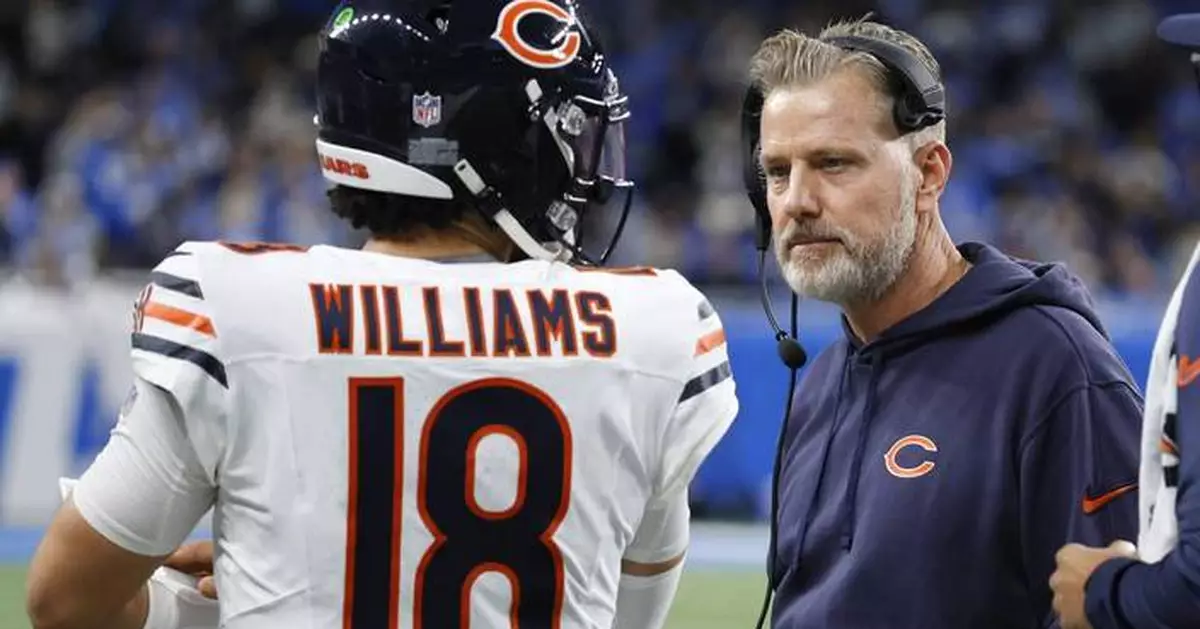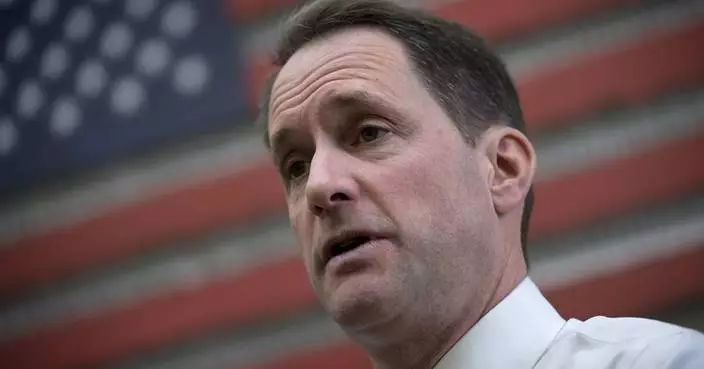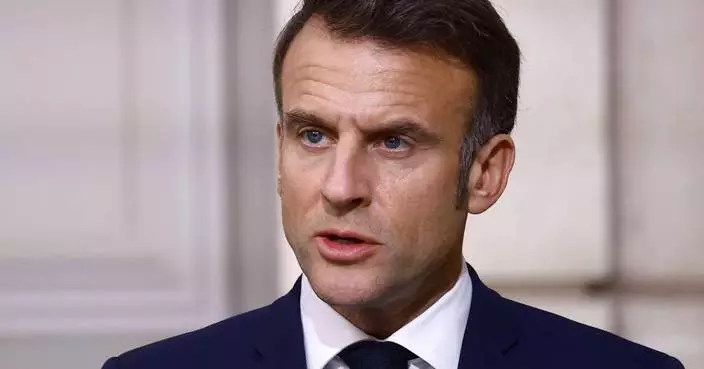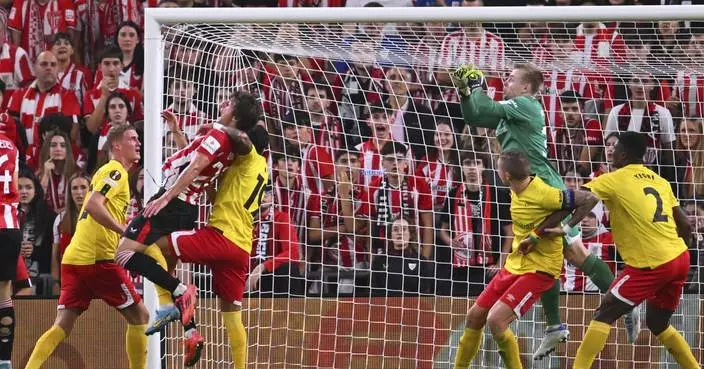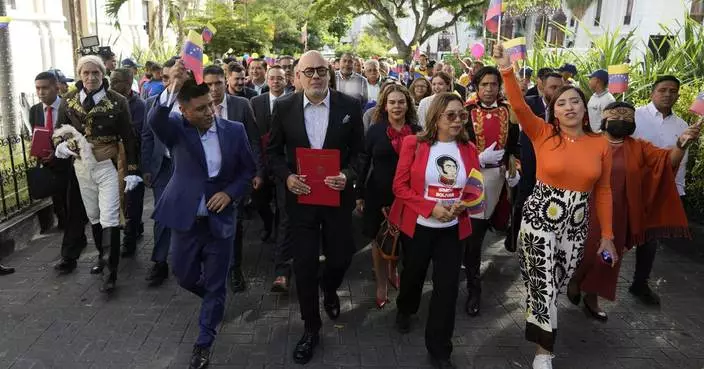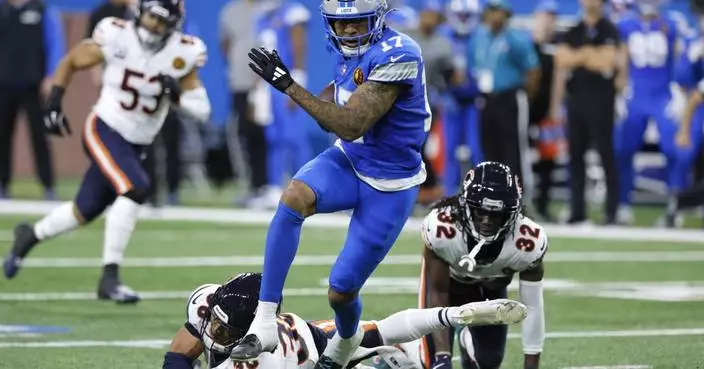DETROIT (AP) — The Chicago Bears could have celebrated a huge comeback and an upset win on Thursday.
Instead, poor clock management on their final drive ended their bid and extended their losing streak to six games after a 23-20 loss to the Detroit Lions.
The Bears drove into position for a tying field goal or winning touchdown, only to have a sack and questionable clock management end the game before they got a chance at either one.
The confusion started after Caleb Williams hit Keenan Allen for a 12-yard completion to the Lions 13 in the final minute.
That would have given the Bears plenty of time to try for the win before attempting the field goal, but guard Tevin Jenkins was called for illegal hands to the face, moving the ball back to the 35.
On second down, the Bears called a draw play for Williams, hoping he could get the first down and set up the field goal. However, backup tackle Larry Borom didn’t move as Za’Darius Smith came in unblocked to sack Williams for a 6-yard loss.
“It got loud, and I don’t think Larry heard the count,” Williams said. “Once I saw Za’Darius coming free, I didn’t want to risk trying to throw the ball away in case he got a chance to get his hands on it. I took the sack and tried to get everybody lined up for the final play.”
As Williams tried to get the play off, Bears coach Matt Eberflus didn’t call Chicago’s last timeout. He said he was conserving it to set up a field-goal attempt.
“The hope was we could re-rack the play, snap it with about 18 seconds left, throw it into field-goal range and call the timeout,” he said.
The clock, though, ran beyond 18 seconds and beyond Eberflus’ other benchmarks.
“Once it gets under 12, we can’t throw a pass to the sideline, and once it gets under seven, you have to throw the ball to the end zone,” he said. “At that point, if you call a timeout, it is to throw it to the end zone.”
When Williams realized no timeout was coming, he hurriedly changed the play call to a deep pass to Rome Odunze, but it fell incomplete just short of the end zone.
“I knew we didn’t have time for a field goal, so I made an adjustment,” he said. “I just wanted to get Rome one-on-one and try to take a shot at six.”
Williams didn’t second-guess his coach.
“We can call a timeout there or we cannot,” he said. “I’m not going to say I was surprised. My job is just to go out there and make plays. I let the coaches and everybody make that decision — it is their call. Maybe in the later years of my career, it will be my call.”
The finish ruined a spectacular second half by Williams, who went 15 for 24 for 222 yards and three touchdowns and rushed for 29 yards.
“We didn’t have any sustained possessions in the first half, so we had to get positive drives in the second,” he said. “That was a big point for us at halftime and we got into a rhythm and stayed encouraged.”
Williams could have helped the Bears to a memorable comeback win on Thanksgiving, but the Bears once again fell short.
“I think we handled it the right way,” Eberflus said. “I believe we could re-rack the play and get it done.
“It just didn’t work out.”
AP NFL: https://apnews.com/hub/NFL
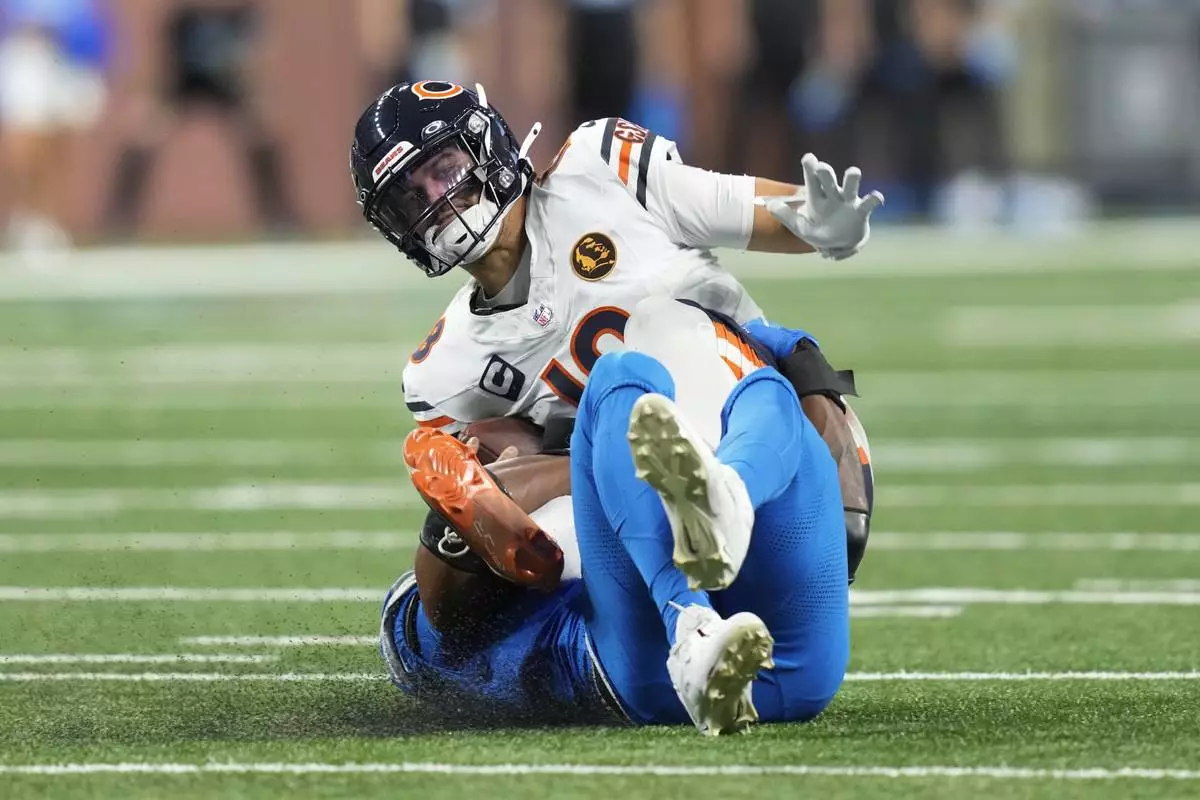
Chicago Bears quarterback Caleb Williams (18) is sacked by Detroit Lions linebacker Al-Quadin Muhammad (69) during the second half of an NFL football game in Detroit, Thursday, Nov. 28, 2024. (AP Photo/Carlos Osorio)
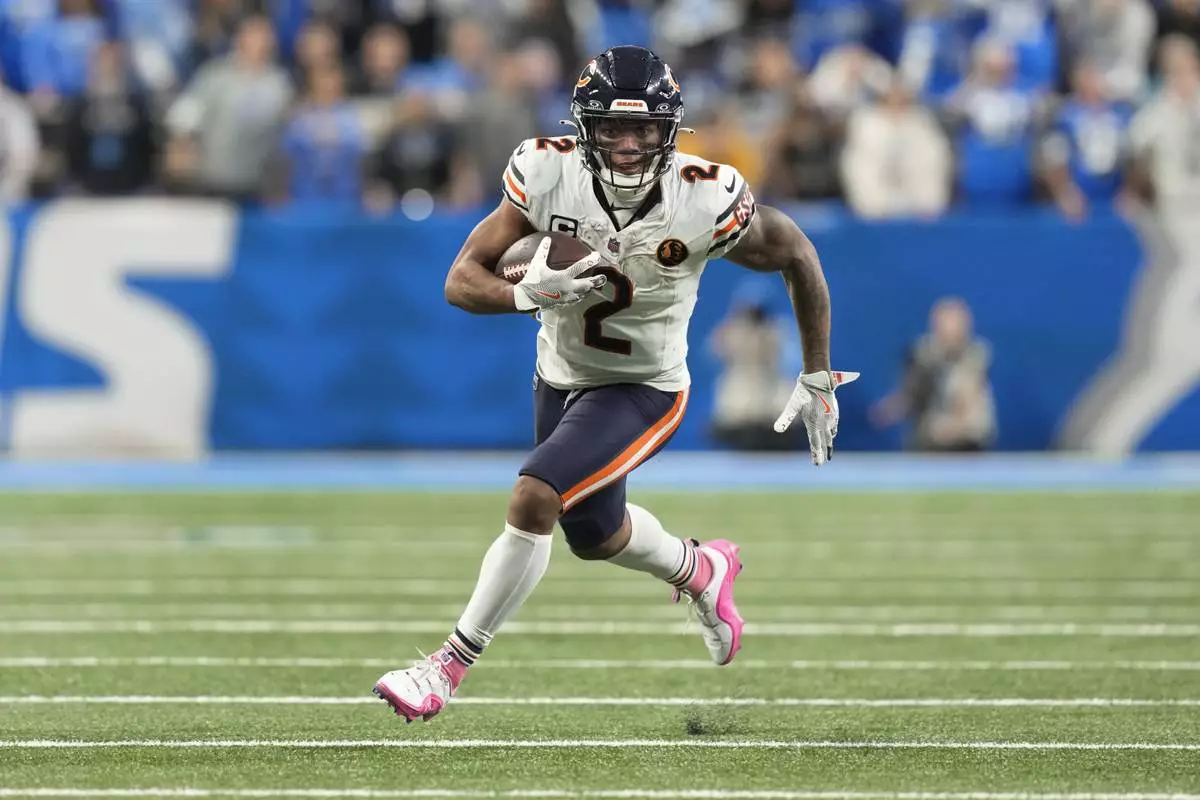
Chicago Bears wide receiver DJ Moore (2) runs after a catch against the Detroit Lions during the second half of an NFL football game in Detroit, Thursday, Nov. 28, 2024. (AP Photo/Carlos Osorio)
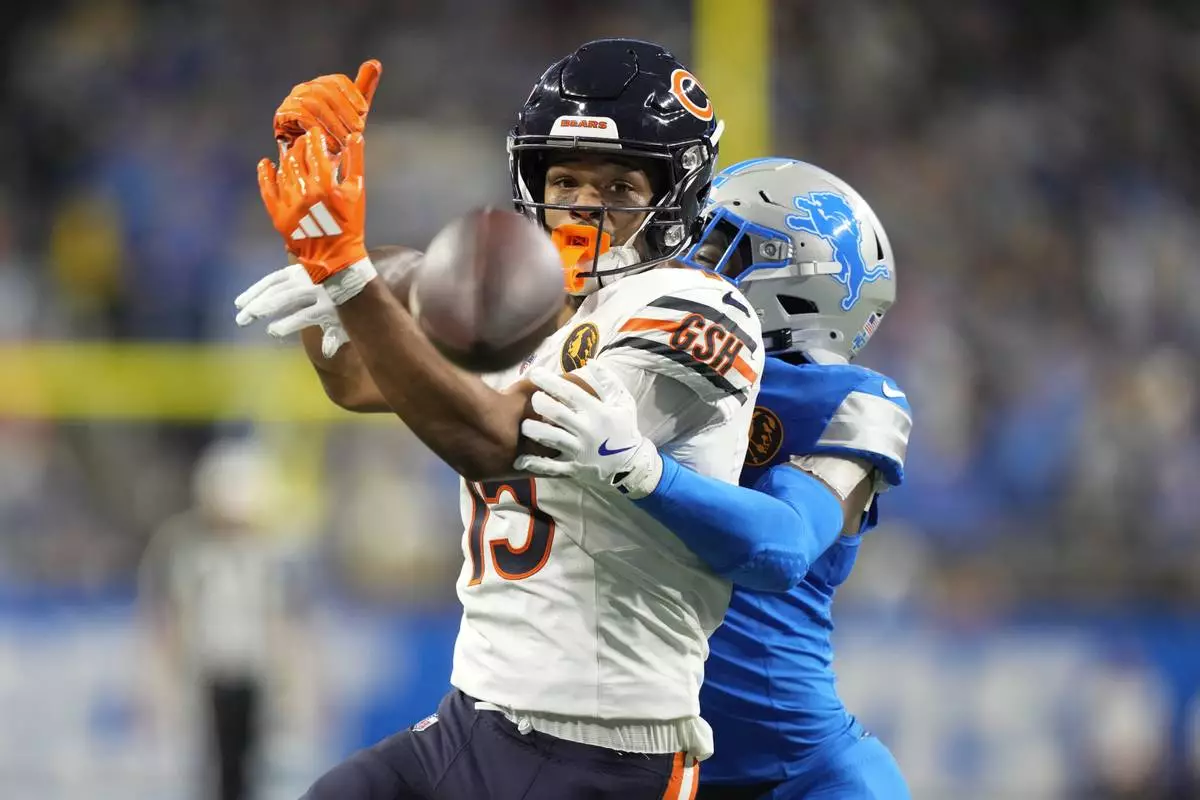
Chicago Bears wide receiver Rome Odunze (15) can't catch a pass as Detroit Lions cornerback Terrion Arnold (0) defends during the second half of an NFL football game in Detroit, Thursday, Nov. 28, 2024. (AP Photo/Carlos Osorio)
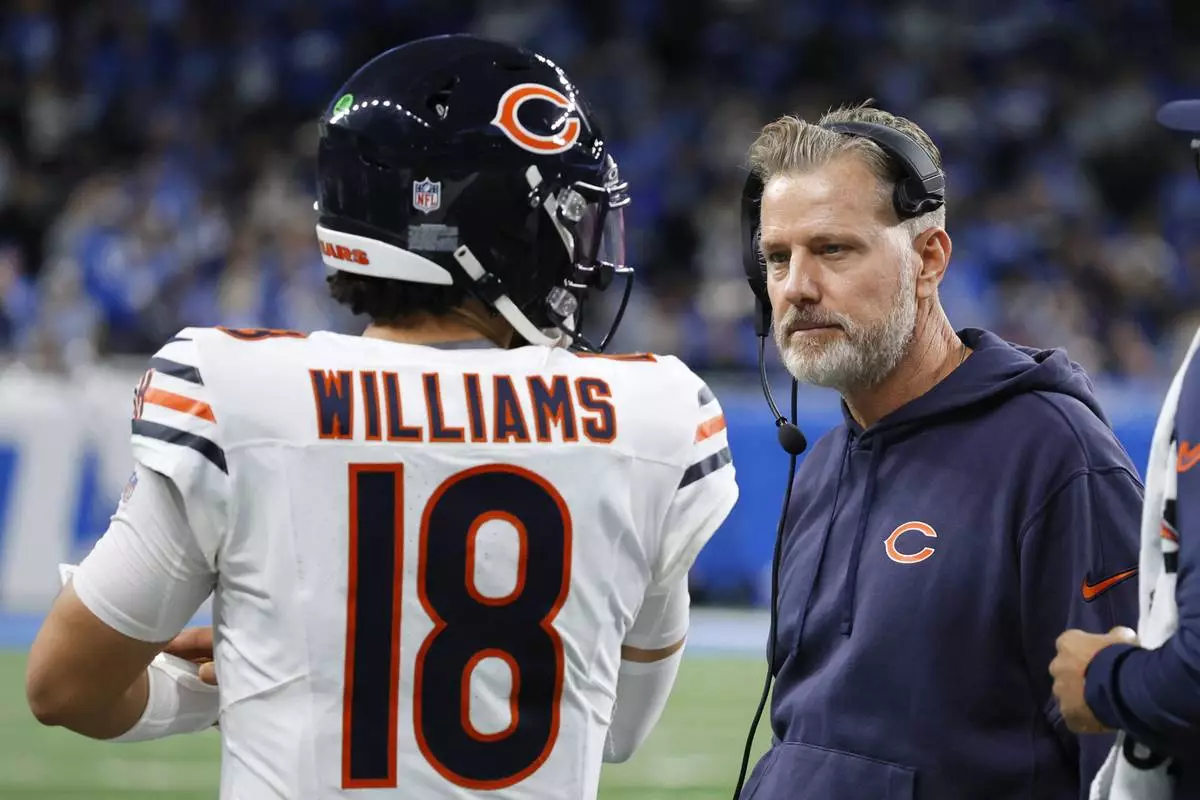
Chicago Bears quarterback Caleb Williams (18) talks with head coach Matt Eberflus during the second half of an NFL football game in Detroit, Thursday, Nov. 28, 2024. (AP Photo/Duane Burleson)
MELBOURNE, Australia (AP) —
A social media ban for children under 16 passed the Australian Parliament on Friday in a world-first law.
The law will make platforms including TikTok, Facebook, Snapchat, Reddit, X and Instagram liable for fines of up to 50 million Australian dollars ($33 million) for systemic failures to prevent children younger than 16 from holding accounts.
The Senate passed the bill on Thursday 34 votes to 19. The House of Representatives on Wednesday overwhelmingly approved the legislation by 102 votes to 13.
The House on Friday endorsed opposition amendments made in the Senate, making the bill law.
Prime Minister Anthony Albanese said the law supported parents concerned by online harms to their children.
“Platforms now have a social responsibility to ensure the safety of our kids is a priority for them,” Albanese told reporters.
The platforms have one year to work out how they could implement the ban before penalties are enforced.
Meta Platforms, which owns Facebook and Instagram, said the legislation had been “rushed.”
Digital Industry Group Inc., an advocate for the platforms in Australia, said questions remain about the law’s impact on children, its technical foundations and scope.
“The social media ban legislation has been released and passed within a week and, as a result, no one can confidently explain how it will work in practice – the community and platforms are in the dark about what exactly is required of them,” DIGI managing director Sunita Bose said.
The amendments bolster privacy protections. Platforms would not be allowed to compel users to provide government-issued identity documents including passports or driver’s licenses, nor could they demand digital identification through a government system.
Critics of the legislation fear that banning young children from social media will impact the privacy of users who must establish they are older than 16.
While the major parties support the ban, many child welfare and mental health advocates are concerned about unintended consequences.
Sen. David Shoebridge, from the minority Greens party, said mental health experts agreed that the ban could dangerously isolate many children who used social media to find support.
“This policy will hurt vulnerable young people the most, especially in regional communities and especially the LGBTQI community, by cutting them off,” Shoebridge told the Senate.
Opposition Sen. Maria Kovacic said the bill was not radical but necessary. “The core focus of this legislation is simple: It demands that social media companies take reasonable steps to identify and remove underage users from their platforms,” Kovacic told the Senate.
“This is a responsibility these companies should have been fulfilling long ago, but for too long they have shirked these responsibilities in favor of profit,” she added.
Online safety campaigner Sonya Ryan, whose 15-year-old daughter Carly was murdered by a 50-year-old pedophile who pretended to be a teenager online, described the Senate vote as a “monumental moment in protecting our children from horrendous harms online.”
“It’s too late for my daughter, Carly, and the many other children who have suffered terribly and those who have lost their lives in Australia, but let us stand together on their behalf and embrace this together,” she said.
Wayne Holdsworth, whose teenage son Mac took his own life after falling victim to an online sextortion scam, had advocated for the age restriction and took pride in its passage.
“I have always been a proud Australian, but for me subsequent to today’s Senate decision, I am bursting with pride,” Holdsworth said.
Christopher Stone, executive director of Suicide Prevention Australia, the governing body for the suicide prevention sector, said the legislation failed to consider positive aspects of social media in supporting young people’s mental health and sense of connection.
“The government is running blindfolded into a brick wall by rushing this legislation. Young Australians deserve evidence-based policies, not decisions made in haste,” Stone said.
The platforms had complained that the law would be unworkable and had urged the Senate to delay the vote until at least June 2025 when a government-commissioned evaluation of age assurance technologies will report on how young children could be excluded.
“Naturally, we respect the laws decided by the Australian Parliament," Facebook and Instagram owner Meta Platforms said. “However, we are concerned about the process which rushed the legislation through while failing to properly consider the evidence, what industry already does to ensure age-appropriate experiences, and the voices of young people.”
Snapchat said it was also concerned by the law and would cooperate with the government regulator, the eSafetry Commissioner.
"While there are many unanswered questions about how this law will be implemented in practice, we will engage closely with the Government and the eSafety Commissioner during the 12-month implementation period to help develop an approach that balances privacy, safety and practicality. As always, Snap will comply with any applicable laws and regulations in Australia,” Snapchat said in a statement.
Critics argue the government is attempting to convince parents it is protecting their children ahead of a general election due by May. The government hopes that voters will reward it for responding to parents’ concerns about their children’s addiction to social media. Some argue the legislation could cause more harm than it prevents.
Criticisms include that the legislation was rushed through Parliament without adequate scrutiny, is ineffective, poses privacy risks for all users, and undermines the authority of parents to make decisions for their children.
Opponents also argue the ban would isolate children, deprive them of the positive aspects of social media, drive them to the dark web, discourage children too young for social media to report harm, and reduce incentives for platforms to improve online safety.
AP Business Writer Kelvin Chan in London contributed to this report.
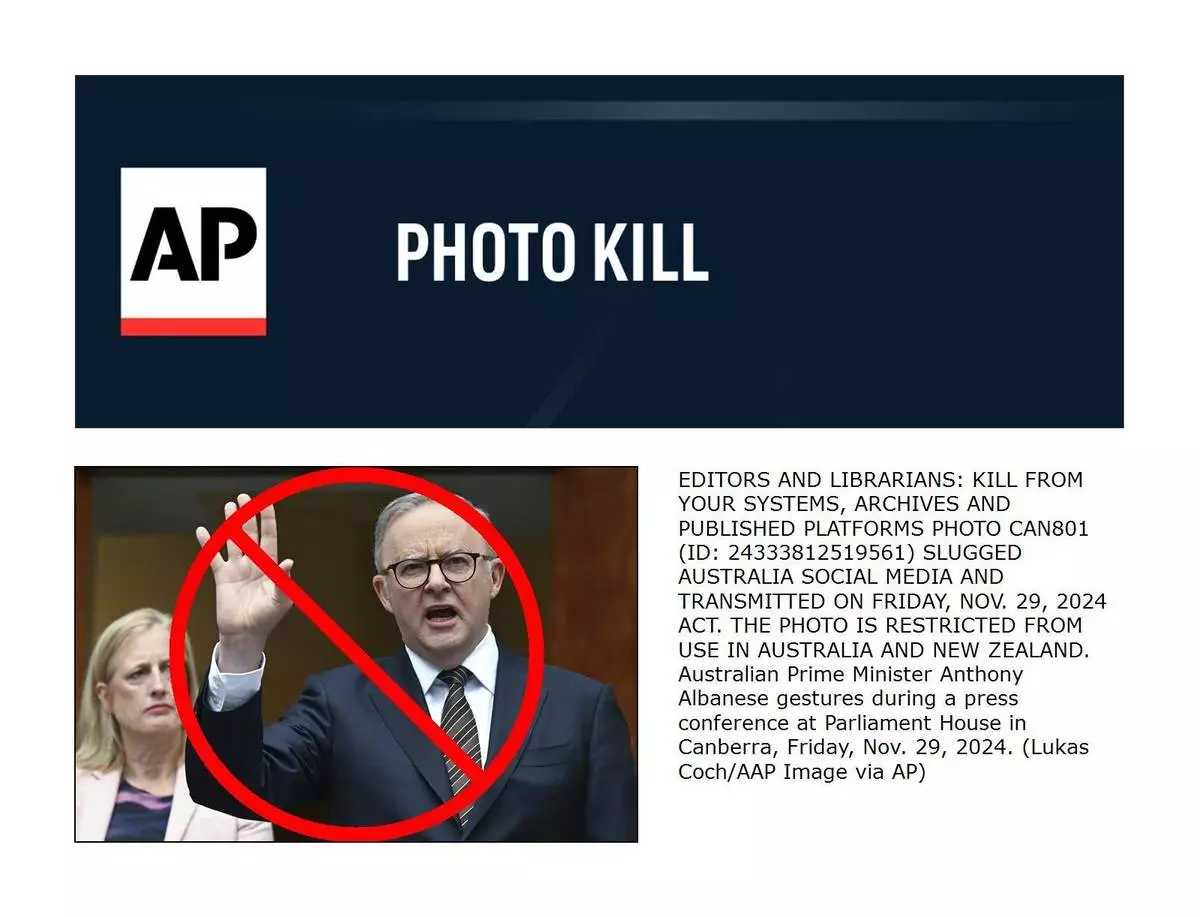
EDITORS AND LIBRARIANS: KILL FROM YOUR SYSTEMS, ARCHIVES AND PUBLISHED PLATFORMS PHOTO CAN801 (ID: 24333812519561) SLUGGED AUSTRALIA SOCIAL MEDIA AND TRANSMITTED ON FRIDAY, NOV. 29, 2024 ACT. THE PHOTO IS RESTRICTED FROM USE IN AUSTRALIA AND NEW ZEALAND. Australian Prime Minister Anthony Albanese gestures during a press conference at Parliament House in Canberra, Friday, Nov. 29, 2024. (Lukas Coch/AAP Image via AP)
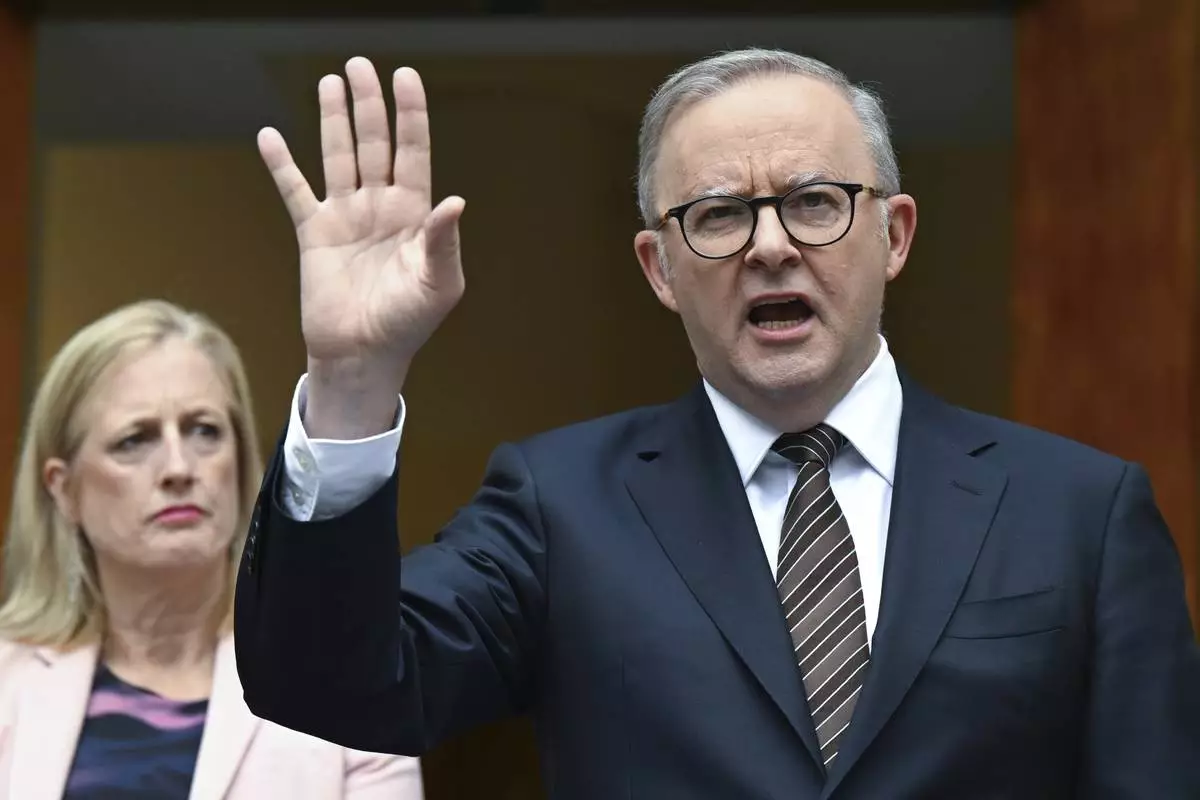
Australian Prime Minister Anthony Albanese gestures during a press conference at Parliament House in Canberra, Friday, Nov. 29, 2024. (Lukas Coch/AAP Image via AP)
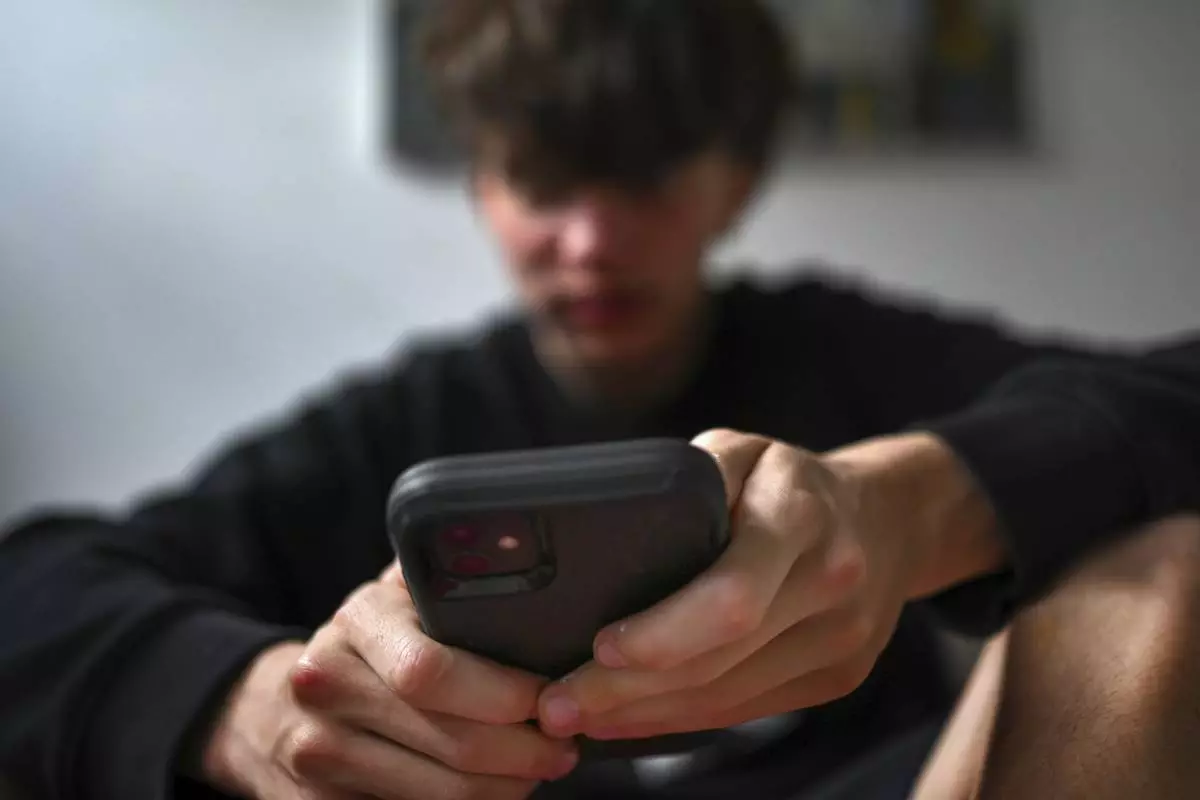
A teenager uses his mobile phone to access social media, Sydney, Wednesday, Nov. 13, 2024. (Dean Lewins/AAP Image VIA AP)






